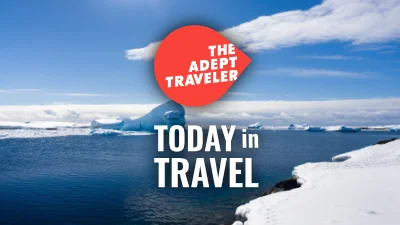Antartica
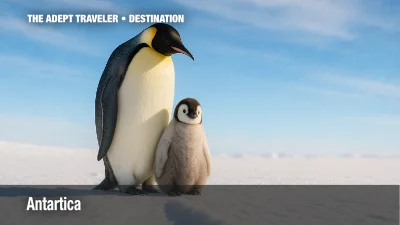
Antarctica covers a landmass larger than Europe, crowned by an ice sheet two kilometers thick. This frozen plateau radiates katabatic winds that sculpt sastrugi ridges and push sea ice northward. Beneath the ice, dormant volcanoes and dry valleys hide ecosystems unlike anywhere else on Earth. Coastlines break into towering shelves, then calve icebergs the size of cities, creating a stark horizon. Interior humidity is so low that moisture sublimates directly into the sky, leaving valleys polished and bone dry.
Along the narrow Antarctic Peninsula, summer temperatures can graze freezing, revealing pebbled beaches swarming with gentoo, chinstrap, and Adélie penguins. Offshore, pods of orcas shadow krill blooms, while elephant seals bellow across ice floes. Humans appear only as seasonal scientists, expedition staff, and intrepid tourists. All operate under strict international treaties that ban mining, limit military activity, and mandate environmental protection. Research stations from more than thirty countries dot the coast, serving as floating laboratories for climate, astrophysics, and biology.
Travel to the continent happens almost entirely by expedition cruise. Steel hulled icebreakers and converted research vessels sail from Ushuaia, Punta Arenas, or Hobart. A few fly-sail programs touch down on King George Island, letting guests skip the notorious Drake Passage. On board, naturalist guides lead shore landings, zodiac explorations, and citizen science projects. Photographers chase golden midnight light across tabular bergs. Voyages range from whirlwind peninsula samplers to month long circle crossings that skirt the Ross Sea.
Seasonality at a Glance
Antarctica opens to tourism during the austral summer, roughly late October through early March. Daylight can stretch past twenty hours, and temperatures hover between minus five and plus five Celsius along the coast. November brings fresh snow, fiercely territorial penguin courtship, and discounted berths. Mid season, December and January, offers warmest weather, peak chick hatches, and higher fares. February reveals iceberg strewn seas, easier ship access, and the best whale sightings. March marks shoulder weeks with dramatic sunsets and shrinking crowds, yet rising sea ice soon ends navigation. Outside these windows, brutal storms, total darkness, and encroaching pack ice halt tourist operations. Winter scientists remain to record auroras and cosmic rays.
Essential Logistics
Most travelers embark from Ushuaia in Argentina, which hosts over ninety percent of Antarctic departures. Punta Arenas, Christchurch, and Hobart also serve select routes. No country holds sovereignty, so visas are unnecessary. Passengers must satisfy their own national exit rules and carry proof of comprehensive evacuation insurance. Expedition ships include cabins and meals, and often rent cold weather gear. Passengers still need waterproof boots, layered thermals, and camera protection. Sailings of ten to twelve days start around 7,000 USD per person. Mid range cabins hover near 12,000 USD, and luxury suites with helicopters or submarines exceed 25,000 USD. Flights between South America and King George Island add cost, yet shorten itineraries by two sailing days. On board payments use USD or credit cards, while satellite internet carries steep data fees.
Responsible Travel Notes
Wildlife thrives when humans keep their distance, so landings follow IAATO guidelines that limit visitor numbers, sterilize gear, and enforce five meter gaps from penguins, ten from seals, and one hundred from whales. Always stay on marked paths, disinfect boots to block avian flu, and never collect rocks, bones, or snow, preserving the continent's fragile, icy wilderness.
Advisor Insight
Booking Antarctica is not a simple click, because cabins sell out a year ahead, insurance rules change fast, and weather can cancel flights without notice. A specialized advisor steers vessel choice, gear rentals, and emergency plans, saving time and money.
Nieuw Amsterdam South America Cruises Open Feb 24

Seabourn Venture Antarctica Record Voyage Reaches 70°S

Quark Polar Bonus Saves $2,000 On Arctic, Antarctic Voyages

Antarctica Pack Ice Frees Scenic Eclipse II

HX Wave Promotion Worldwide Cruises Up to $4,000
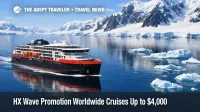
Aurora 35th Sale For Antarctica Cruises, Book By Mar 31
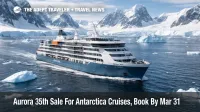
Seabourn 2028 World Cruise Bookings Open From Miami

Seabourn Quest 2028 Cape to Cape World Cruise
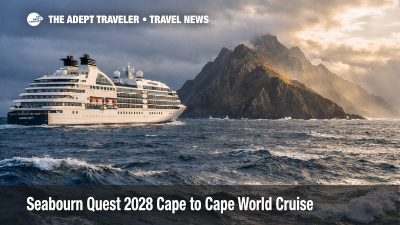
Hotel Delay In Puerto Williams Hits Antarctica Fly Cruises

Douglas Mawson Named In Sydney, New Expedition Ship

HX Expeditions Details 2027-28 Mindful Travel Season
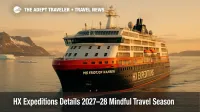
G Adventures Black FriYAY Sale Up To 30% Off

Ponant WHOI partnership launches Antarctic research
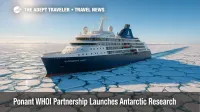
HX Expeditions fall promotion: up to \$2,500 off
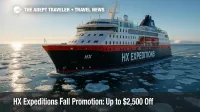
HX Expeditions Cruise Deals Slash Fares by Up to 40%
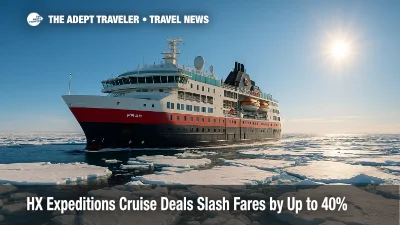
Seabourn's 2027 Pole-to-Pole Grand Expedition Cruise
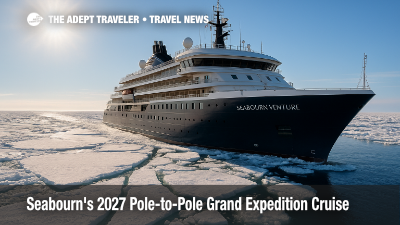
SH Minerva Rejoins Swan Hellenic Fleet, Sets Asia Expansion
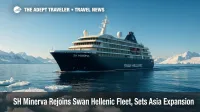
Antarctica Level 2 Travel Advisory
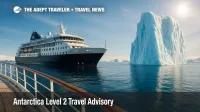
National Geographic Rebrands Youth Program as Explorers-in-Training
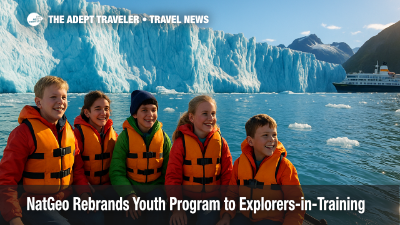
Aurora Expeditions Offers 40 Percent Savings on 2025-2026 Antarctica Cruises*
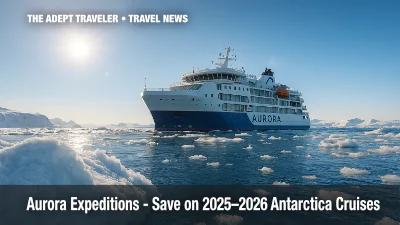
Aurora Expeditions Drops Solo Supplement on All 2025-26 Polar Voyages
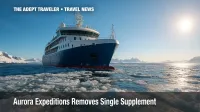
HX Boosts Antarctic Adventure with More Kayaking, Camping
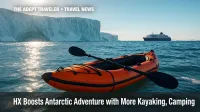
Antarctica Cruises Go All-Inclusive with HX’s 2024-25 Season
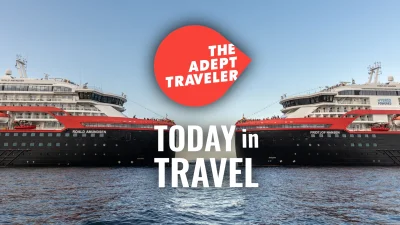
Seabourn Expeditions: High Demand for 2025 Cruises
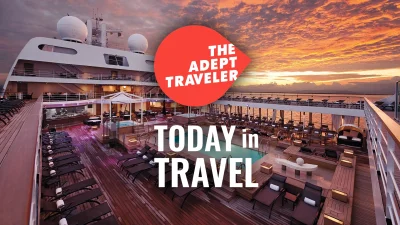
Abercrombie & Kent Unveils Exciting 2025 Expedition Cruises
